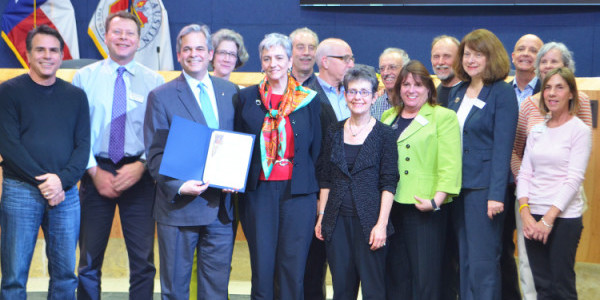
By: Elizabeth McGuire
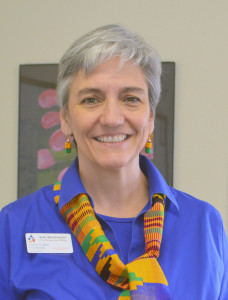 Suki Steinhauser’s business card should probably read Servant Leader instead of CEO. From her first job as a Peace Corps volunteer to her current role with Communities in Schools of Central Texas, Suki has made a career out of giving back to her community. For her, this line of work is more than a professional choice, it’s part of her personal identity.
Suki Steinhauser’s business card should probably read Servant Leader instead of CEO. From her first job as a Peace Corps volunteer to her current role with Communities in Schools of Central Texas, Suki has made a career out of giving back to her community. For her, this line of work is more than a professional choice, it’s part of her personal identity.
Originally from Massachusetts, Suki earned a B.A. from Syracuse University and came to the University of Texas for her M.B.A. She has called Austin home ever since.
Today she is the Chief Executive Officer of Communities in Schools of Central Texas, which empowers students to stay in school and achieve in life. CIS currently serves 45,000 students from 60 high-needs schools in 7 school districts in the region. Prior to becoming CEO, Suki served as the agency’s Director of Projects, where she expanded the agency’s innovative programming.
Suki is a graduate of Leadership Austin’s Essential Class of 2007 and has served on numerous nonprofit boards and advisory councils, including Habitat for Humanity, the Seedling Foundation and One Voice Central Texas.
Articulate and thoughtful, Suki exudes a calm and steady confidence. She brings a blend of passion and practicality to her work and life. For example, she is a high-profile leader but also a self-described nerd about the nitty gritty of strategic planning. She values work-life balance so she wears a bracelet that beeps at 5:00pm on weekdays to remind her to head home soon.
These are simple gestures, but they are part of a much larger lesson: There’s real value in finding deliberate and pragmatic ways to support the beliefs that we cherish most.
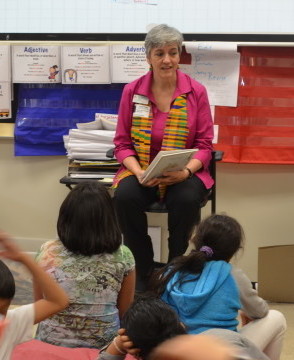 Are you surprised that you’ve been with CIS for nearly 21 years?
Are you surprised that you’ve been with CIS for nearly 21 years?
Not really. If you’re lucky enough to find your passion and do it professionally, you want to keep doing it. I think we follow our values. I grew up with educators and thought I wanted to teach, but I decided I wasn’t a very gifted teacher. Kids need gifted teachers. I wanted to contribute to education and this is an incredible way to do that because CIS removes obstacles for kids to get their education. It’s such a powerful mission. There’s so much variety and so much need that it makes sense I’ve stayed in the same spot once I found it.
What first drew you to the nonprofit world?
I was in the Peace Corps right after college (3 years in Swaziland in Southern Africa), and I think anything you do at that age has a big impact on you. For me it was the idea of starting a life of giving back. My husband and I met in the Peace Corps, and service defines who we are as people.
Even in high school I was an exchange student in India, so I had some international experience. I had seen poverty and seen a lot of need. As I got older I recognized that “Hey, I can do something about that.”
How has Austin changes in the decades you have lived here?
As a city we’re opting to have more people genuinely able to participate in the political process, by changing to our 10-1 system. Even as the city was changing like crazy, our governance wasn’t. So this is a really interesting time.
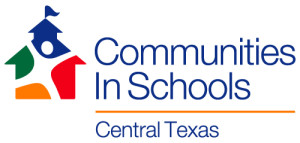 CIS is part of education reform. Now schools, communities, parents and educators are recognizing that you really do have to support the whole child because they are not going to succeed academically if they are having other struggles.
CIS is part of education reform. Now schools, communities, parents and educators are recognizing that you really do have to support the whole child because they are not going to succeed academically if they are having other struggles.
Once upon a time there was a lot of government funding to take care of the needs of the community. While we have strong and supportive local government, funding at the federal and state level has decreased. When I came to CIS, 95% of our budget was state funding; today 12% is state funding. Now we have 40% in private funding compared to maybe 2 percent back then.
We have an active philanthropic community that is investing in things that will help the city remain a great place for everybody…and a better place for those people who aren’t living the dream.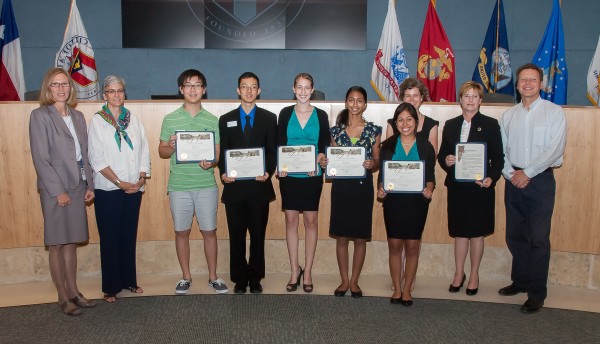
What does Austin needs as a community?
Cross-sector conversations. It’s not a natural act. We have this tremendous income segregation and we have to work hard to have those dialogues.
In my professional role, I have an opportunity (and a responsibility) to have a board that is strongly representative of the community. I have the opportunity to access the resources of the larger community to bring them to bear into the schools that don’t have the resources. I like being in the position of acting across sectors.
This is also one of the great things about Leadership Austin…it’s very good at encouraging that dialogue.
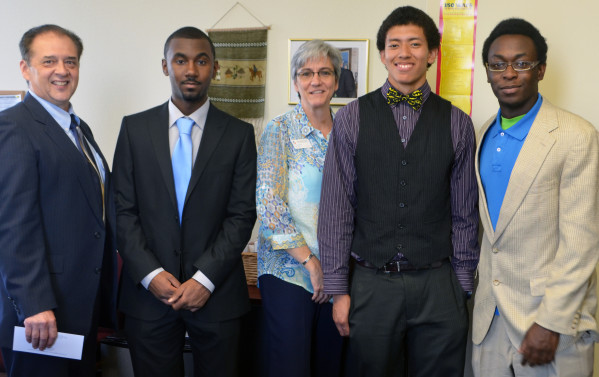 What makes Communities in Schools unique?
What makes Communities in Schools unique?
Organizationally, we are unique in that we have one foot in education and one foot in social work. A kid doesn’t stop being a kid with issues just because he goes to school.
Our mission statement is evocative of what we do: “We surround kids with a community of support, empowering them to stay in school and achieve in life.” We don’t zoom in and out of the school. We are full time, year round on the campus. We put a social service professional there and they are part of the school community.
We bring in a lot of outside resources. If we find students are needing health resources–insurance, for example–we will work with their parents to get them signed up and find a primary care doctor. If they’ve been evicted from their home we are going to help their family get resettled.
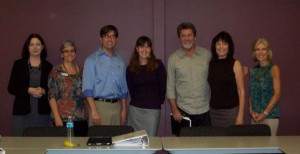 Social workers are amazing. They are so good at navigating systems and making things happen for someone who may have had an unmet need. We are surrounding kids and also empowering them. It’s about them having the skills and resources themselves.
Social workers are amazing. They are so good at navigating systems and making things happen for someone who may have had an unmet need. We are surrounding kids and also empowering them. It’s about them having the skills and resources themselves.
What’s on the horizon for CIS?
We are doing strategic planning. I’m a huge believer in strategic planning. A lot of people have been part of a strategic plan that sits on the shelf. For us, it’s a time when we stop just a little. Because we are so busy all the time…it’s such an important thing to stop, look at the data, look at the trends in the community, look at the needs of the community, ask people in the community for input, and then form a plan and set goals to make us even better.
This is why people get into Leadership Austin. If they get picked, they are already leaders. But you have to reach for something to be better. For me, strategic planning is like that for CIS. It’s the time that we stop and say, “We are going to reach.”
It’s so wonderful that there’s more and more science that is backing up what we’ve been doing for years. For kids who live in poverty, there are neurological changes that happen when they have experienced trauma. For years we’ve been doing the same things that neuroscientists now are concluding should be done.
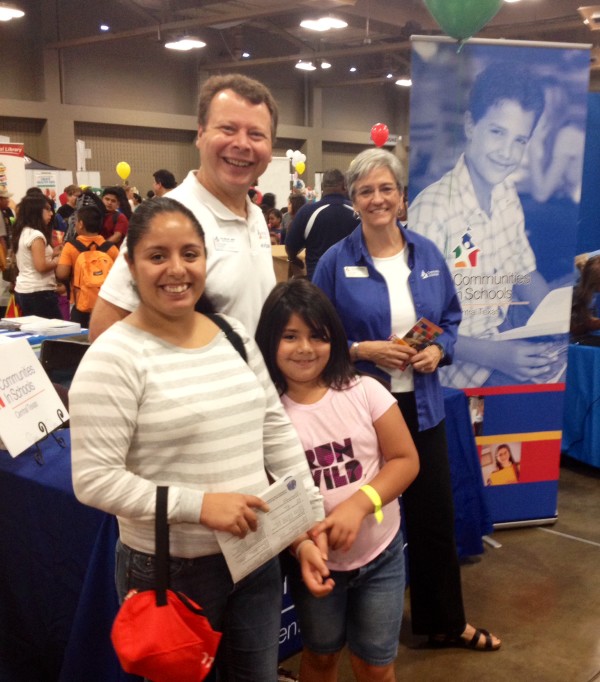 What’s the most rewarding part of your work?
What’s the most rewarding part of your work?
Knowing we are reaching our ultimate goal: that kids are able to be successful in school no matter what the circumstances or disadvantages of their community. We are also facilitating the community’s ability to help. There’s a multiplier effect: it’s more than the sum of its parts.
What drew you to Leadership Austin and what lessons have stuck with you?
I had just accepted the CIS board’s request to be interim CEO. I had already been thinking about applying to Leadership Austin, and my new job just accelerated my desire to be part of the program.
The greatest lesson was that if you really listen to people and understand what their interests are, then it’s possible to have more win-win situations. The program emphasized the idea of reflecting and listening to understand. I think sometimes people just don’t understand different perspectives, yet it’s one of the most important skills we can learn.
What makes a good leader?
The ability to balance listening and acting. There are 16 other versions of that advice, but that’s my way of phrasing it. In our business, empathy is so important. It’s a good quality in any leader, but in the social services field it is critical.
When I was asked to take this job, I thought Chief Executive Officer was such a fancy title, especially in social services.
Secretly I harbored this idea that CEO stood for Chief Ethics Officer.
I think the most important thing that a leader can do is make sure your organization is ethical, acts with integrity, does what you say you’re going to do, and treats everyone with fairness and respect.
How would you describe your leadership style?
I am mostly a servant leader. I recognize that all of my coworkers have chosen to be on our team because they have a passion for our mission of helping kids to be successful in school and in life. I believe in supporting others to do what they do best–and I’m fortunate to work with fantastic social workers, board members and folks with other technical skills that help us achieve our mission.
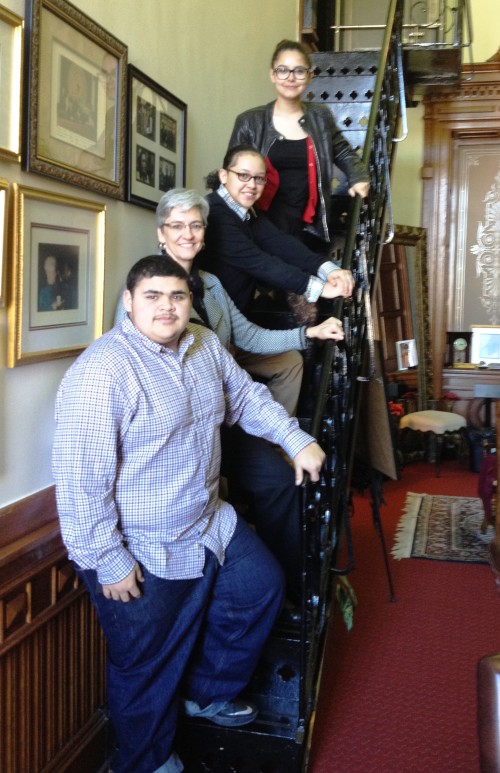 Any advice for Austin leaders?
Any advice for Austin leaders?
It’s important to have trusted people in your life–someone you can talk to who won’t judge, so you can process different situations. Having a mentor, perhaps someone not in your business, is very helpful.
In the times we live in, it’s also important to make sure you take the time to be unplugged…to get into nature, to be with your family and friends. The pace of our professional careers is not going to change any time soon. You have to actively protect that time and make sure you recharge, because society won’t do that and technology won’t allow it.
Who inspires you?
Lately I’ve been thinking about this quote from Julian Bond, the social activist and civil rights leader. He said, “Many are attracted to social service–the rewards are immediate, the gratification quick. But if we have social justice we won’t need social service.”
What I love about Communities in Schools is that we do both and we do both well. Kids grow up so fast. You need to work toward social justice but you can’t wait for it. Kids need support now. But I do believe that if you are really a leader, you are working for social justice, not just the issue of the day.
###
